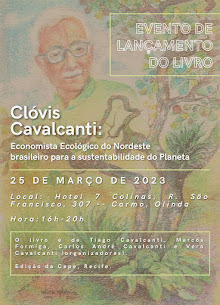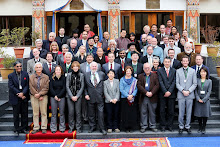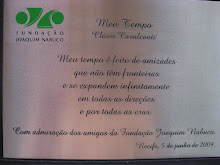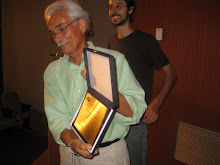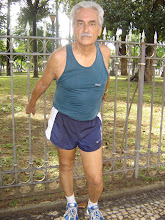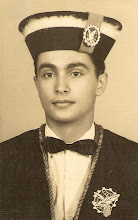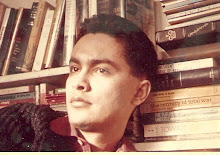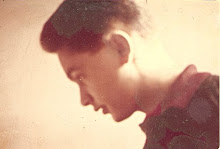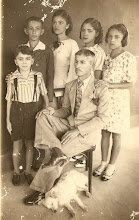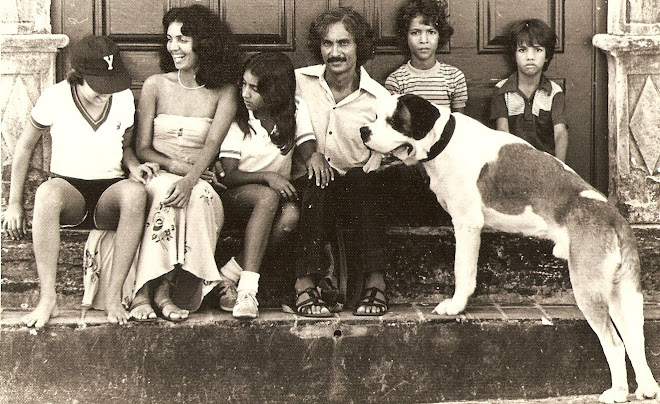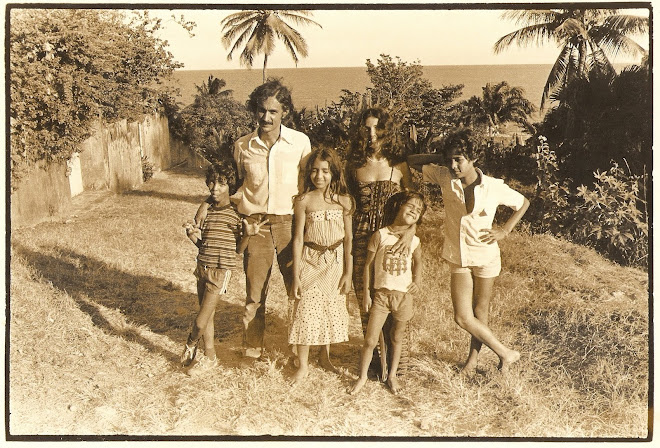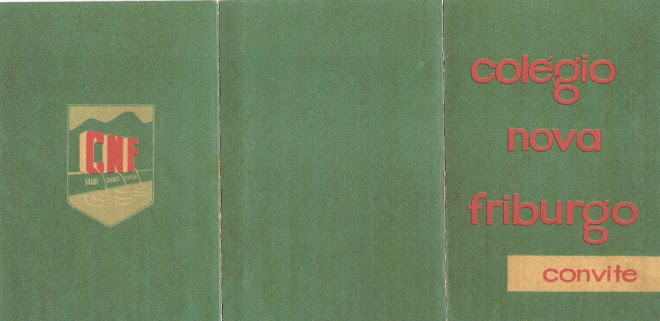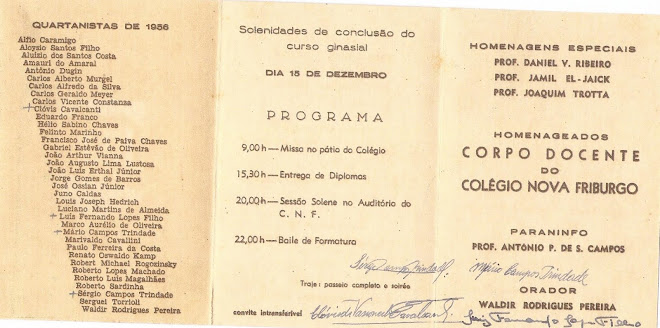Prof. David Barkin e prof. Clóvis Cavalcanti NÃO
1º Congresso Internacional do Centro Celso Furtado. 2012.
Foto: Isabla Kassow / Centro Celso Furtado
http://www.centrocelsofurtado.org.br/interna.php?&ID_M=1399
Professor O Clóvis Cavalcanti, sócio do Centro Celso Furtado, foi eleito presidente da Sociedade Internacional de Economia Ecológica (ISEE -
www.isecoeco.org ). Concorreu com David Barkin, FAÇA México, Que em 2012 Participou de SUA mesa sem Congresso Internacional do Centro Celso Furtado.
Leia a carta da ISEE Sobre a eleição de Clóvis Cavalcanti.
"Queridos Colegas,
Obrigado por permitir that SEUS nomos a apresentar Pará uma eleição ISEE. OS Resultados were Próximas MUITO, particularmente PARA O presidente eleito, com APENAS UM voto Entre Clóvis Cavalcanti e David Barkin. No entanto, a História EO ISEE Estatuto Social nsa dizem Que hum voto E decisivo (Por Exemplo, 1645: 1 voto deu o Controle da Inglaterra parágrafo Oliver Cromwell ...) e ágora Podemos anunciar OS candidatos Aprovados Como segue:
Presidente eleito: Clóvis Cavalcanti
7 Membros ósmio do Conselho:
Joshua Farley (EUA) / Brynhildur Davidsdottir (Islandia) / Rajeswari Raina (Índia) / Jesus Ramon-Martin (Equador) / Zhu Daijian (China) / Tatiana Kluvankova (Eslovaquia) / Eva Cudlinova (República Checa)
Esperamos Muito that OS candidatos that Nao prevaleceu DESTA Vez permanecerá envolvido e TALVEZ VAI cooptados concordar em SER NAS VARIAS Comissões - há um ano Muito Feito ser, EO Seu Envolvimento Sera Muito apreciada.
Pára
Sociedade Internacional de Economia Ecológica (ISEE) 2016 Conference
Transformando a Economia: Manter Alimentos, Água, Energia e Justiça
Washington DC 26-29 junho de 2016
Marina Fischer-Kowalski, Sabine O'Hara
Anne C. Aitken
Managing Editor - Economia Ecológica
Diretor Executivo - ISEE "
-------------------------------------------------- ---
MINHA LIGAÇÃO COM A ECONOMIA ECOLÓGICA
Clóvis Cavalcanti.
Minha Aproximação da Economia ecológica começou em julho de 1964, quando Ouvi o prof. Nicholas Georgescu-Roegen Falando na Fundação Getúlio Vargas (Rio). Eu Fazia Ai pós-graduação UMA de economia. Georgescu explicou o papel das leis da termodinâmica (e, obviamente, da entropia) No processo Econômico. Entre janeiro e março de 1970, professor fui visitante NÃO Departamento de Economia da Universidade de Vanderbilt. Minha sala ( Escritório ) era Vizinha à de Georgescu. Eu o via Diariamente. Conversávamos nessas ocasiões. Um dia, um Convite Seu, fui Jantar em Sua Casa.
O Que Mais me Marcou Nesse Período, porem, Uma foi Leitura de Seu Livro Analytical Economics. Questões e Problemas (Cambridge, EUA: Harvard University Press, 1967), em Cujo Prefácio Paul Samuelson, colega de Georgescu em Harvard, classifi-o Como "economista dos Economistas". A Natureza NÃO estava Sendo Leva em consideração na Equação do Desenvolvimento. Perceber ISSO e ler Georgescu-Roegen Só aguçou Minha Curiosidade em relaçao a examinar a Economia na ótica da ecologia. Coincidiu Que, nos Meus meses de Vanderbilt, li hum Livro muito bom de Erich Fromm: A Arte de Amar (Nova York: HarperCollins Publishers, 1956). A Leitura me Levou A pensar no Conteúdo da Reflexão de Fromm, OU SEJA, se o amor é Uma arte, O Que Exige Conhecimento e esforço, OU Uma sensação Agradável, cuja Experiência e Um lance de sorte, Alguma Coisa em Que se cai se uma fortuna Ajuda. O livro Mostra Que amar E UMA arte. Amar a Natureza E UMA arte, portanto, impondo o Estudo da Natureza.
Escrevi Artigos NAS Décadas de 1970 e 1980, o Nenhum Jornal do Brasil , do Rio, ENTÃO o Mais Importante fazer país. ELES ofereciam Uma Visão Crítica da Teoria Econômica e do Desenvolvimento. Falei num Deles na Lei da Entropia em relaçao Ao Crescimento Econômico. Herman Daly o leu. Escreveu-me e Mandou Trabalhos SEUS. Ficamos em Contato de ENTÃO (eu encontrei Herman, Pela Primeira Vez, em março de 1970, em Yale, era ELE Onde hum
companheiro visitante ). Em 1983, organizei hum Curso Durante a Reunião Anual da SBPC em Belém do Pará, Chamado, título Melhor POR falta de, de "A Economia dos Anos 80". Para Ele, convidei Como Expositores, Herman, e Dois Economistas dissidentes: Cristovam Buarque e Dirceu Pessoa (1937-1987), foi hum Sucesso. Hum compareceram ELE 50 Alunos, Entre OS Quais Amélia Rodrigues Henríquez, que estudava Economia e se transformou em economista ecológica, Chegando a presidente da ECOECO (2010-2013)
Em maio de 1990, o organizadores Convidado Pelos, participei Como palestrante do I Encontro da Sociedade Internacional de Economia Ecológica (ISEE), em Washington, DC (EUA). Em SEGUIDA à Reunião de Washington (maio-jun., 1990), efetuou-se hum oficina
em Wye Island (Maryland), congregando 25 PESSOAS (Kenneth Boulding, Herman Daly, Joan Martínez Alier, Richard NØRGAARD, John Proops, Garrett Hardin, Bob Costanza, Enzo Tiezzi, Silvio Funtowicz, Entre Enguias). (Eds.) Tive a honra de Participar do Seminário, FAÇA qua resultou o Livro de Costanza e Joyce Bartolomeu Economia Ecológica: a Ciência e Managemente de Sustentabilidade ., Fazer coautor sou qua Nos Anos 90, colaborei na Instituição da ECOECO e da ANPPAS. Organizei Dois Seminários que estavam Básicos Nesse Processo. Em 1994, o Nenhum Engenho Massangana, com o título "Economia da Sustentabilidade". Um estiveram ELE PRESENTES Peter May, Darrell Posey (1947-2001), Frank Jöst (do grupo de Reiner Manstetten), Ronaldo Seroa da Motta, Eduardo Viola, Paulo Freire Vieira (Ligado a Ignacy Sachs), etc. O Outro Encontro foi em Olinda (abril de 1996), Com Daly, Martínez Alier, Norgaard, Cutler Cleveland, Robert Goodland, Salah El Serafy, Peter May, Posey, Karl-Erik Eriksson e Mais gente. De Ambos OS Livros eventos resultaram. O Segundo foi Traduzido Para o inglês: O Meio Ambiente, Desenvolvimento Sustentável e Políticas Públicas: Edifício de Sustentabilidade no Brasil (Cheltenham: Elgar, 1997).
Participei de Todos os Encontros da ISEE, EXCETO os de Montreal (2004) e Nairobi (2008). De Todos os da ECOECO, Menos o de Belém do Pará (1997). De Todos os da ANPPAS. Tambem me envolvi na Rede Ibero-Americana de Economia Ecológica (Redibec). Meu Desejo foi sempre o de contestar a Economia convencional Que aprendi inclusive com James Tobin, em Yale. Nisso, sigo O Que Georgescu deixou Como legado. Entendo Que a Economia Ecológica SEJA Uma Visão ecológica da Economia; NÃO E, portanto, um ramo da Economia. A Economia Significa Uma Visão Econômica da Economia. E a Economia ambiental e A Visão Econômica do Meio Ambiente. A Proposito, O Primeiro Curso de economia ambiental no Brasil foi dado por Mim no Segundo semestre de 1975, na Graduação de Economia da Universidade Federal de Pernambuco, Como Matéria Optativa.
O Que Eu gostaria de Fazer na Condição de presidente eleito de e contribuir da forma Melhor Possível para quê hum ISEE efetivamente represente Uma Força Para se introduzir nova forma de ver o Mundo Nenhuma Âmbito da Ciência com Respeito Às Relações Entre Economia e Natureza.
Minha Perspectiva E exatamente Uma MESMA de Herman Daly, Joan Martínez Alier, Nicholas Georgescu-Roegen. Julgo Que se DEVE PROMOVER Uma Ciência comprometida com o Bem-Estar Humano, com a busca da felicidade. A ISEE TEM Tudo Paragrafo Realizar Esse papel, na Linha fazer isso Daly propõe com Respeito à economía de estado estacionario . Em sintonia também com hum RECENTE encíclica do Papa Francisco
Laudato Si ' e com Uma Experiência de 40 meses da filosofia da Felicidade Nacional Bruta, do Butão.
-------------------------------------------------------
ISEE President Elect
Candidacy: Statement
Clóvis Cavalcanti
My approach of ecological
economics began in July 1964, when I heard Nicholas Georgescu-Roegen speaking
at the Getúlio Vargas Foundation (in Rio). I was doing there a graduate program
in economics. Georgescu explained the role of the laws of thermodynamics (and
obviously, entropy) in the economic process. Between January and March 1970, I
was a visiting professor in the Department of Economics at the University of
Vanderbilt, where Georgescu taught. My office was beside his. I saw him daily.
We talked on those occasions. One day, at his invitation, I went to dinner at
his house.
What most impressed me during this period, however, was reading his book Analytical Economics. Issues and Problems (Cambridge,
USA: Harvard University Press, 1967), in whose preface Paul Samuelson,
Georgescu’s colleague at Harvard, classifies him as an “economist's economist.”
Nature was not being taken into account in the work of the conventional
economist. To realize this and read Georgescu-Roegen only whetted my curiosity
about examining the economy from the viewpoint of ecology. It coincided that in
my months of Vanderbilt, I read a very good book by Erich Fromm, The Art of Loving (New York:
HarperCollins Publishers, 1956). The reading led me to think about the content
of the reflection of Fromm, that is, if love is an art, which requires
knowledge and effort, or a pleasant sensation, whose experience is a fluke,
something that falls to fortune help. The book shows that love is an art. To love
nature is thus an art, therefore, imposing the study of nature itself.
In the 1970s and 1980s, as a regular contributor I wrote articles in the Jornal do Brasil newspaper, of Rio, then
the most important in the country. They offered a critical view of economic
theory and development. In one of them I spoke about the Entropy Law in
relation to economic growth. Herman Daly read it. He then wrote to me and sent some
of his works. We stayed in touch ever since (I met Herman for the first time in
March 1970, at Yale, where he was a visiting fellow). In 1983, I organized a
course at the annual meeting of SBPC (the Brazilian Society for the Advancement
of Science) in Belém (state of Pará), called, for lack of a better title, ‘The
Economics of the 80s”. To teach it with me, I invited as lecturers, Herman, and
two dissident economists: my former student Cristovam Buarque (a Brazilian
senator at present, and former minister of education and rector of the
University of Brasília) and Dirceu Pessoa (1937-1987), with whom I wrote a book
in the 1960s. It was a success, attended by about 50 students, including Amélia
Rodrigues Henríquez, who then studied economics and later turned into an ecological
economist, even becoming president of the Brazilian Society for Ecological
Economics (ECOECO) in 2010-2013.
In May 1990, invited by the organizers, I participated as a speaker in the
First Meeting of the International Society for Ecological Economics (ISEE) in
Washington, DC (USA). Following the Washington meeting, a workshop took place
at Wye Island (Maryland), bringing together around 25 people (Kenneth Boulding,
Herman Daly, Joan Martínez Alier, Richard Norgaard, John Proops, Garrett
Hardin, Bob Costanza, Enzo Tiezzi, Silvio Funtowicz, among them). I was honored
to attend the seminar, which resulted in the book by Costanza and Joyce
Bartholomew (eds.) Ecological Economics:
the Science and Management of Sustainability, of which I am a co-author. In
the 90s, I collaborated in the establishment of ECOECO and ANPPAS (Brazil’s
National Association for Research and Graduate Studies on the Environment and
Society). I organized two seminars that were basic in this process. The first
one, in August 1994, at Engenho Massangana (state of Pernambuco), entitled “The
Economics of Sustainability”. It was attended by Peter May, Darrell Posey
(1947-2001), Frank Jöst (from Reiner Manstetten’s group), Steve Viederman,
Ronaldo Serôa da Motta, Eduardo Viola, Paulo Freire Vieira (a student of Ignacy
Sachs), and other people. The other meeting occurred in Olinda (Pernambuco) in April
1996, with Daly, Martínez Alier, Norgaard, Cutler Cleveland, Robert Goodland,
Salah El Serafy, Peter May, Posey, Karl-Erik Eriksson and more people. Two books,
which I edited, resulted from these events. The second one was translated into
English: The Environment, Sustainable
Development and Public Policy: Building Sustainability in Brazil
(Cheltenham: Elgar, 1997).
I attended all the biennial meetings of ISEE, except those of Montreal (2004)
and Nairobi (2008). Of all ECOECO congresses, I missed the third one, of Belém (Pará)
in 1997. As to ANPPAS’s conferences, I attended all of them. Also I got
involved in the Ibero-American Network of Ecological Economics (Redibec). My
desire has always been to challenge the conventional economics I learned at the
university, with teachers that include the Nobel laureate James Tobin at Yale.
In this, I follow what Georgescu indicates. I understand that Ecological
Economics is the ecological view of the economy; it is therefore not a branch
of economics. Economics means the economic view of the economy. And environmental
economics is the economic vision of the environment. By the way, the first
course of environmental economics in Brazil was given by me in the second half
of 1975 at the undergraduate level in the Faculty of Economics of the Federal
University of Pernambuco, as an elective discipline. At that time I was in the
transition from being an economist to becoming an ecological economist.
What I would like to do as
President Elect of ISEE is to contribute in the best possible way for ISEE to
effectively represent a force to introduce a new way of seeing the world within
the scientific field with respect to the relations between the economy and
nature. My perspective is exactly the same of Herman Daly, Joan Martínez Alier,
Nicholas Georgescu Roegen. I think we should promote a science committed to
human well-being, to the pursuit of happiness – the enjoyment of life, in
Georgescu’s words. ISEE has everything to fulfill that role, in line with what Daly proposes with respect to
the steady-state economy; in line also with Pope Francis’s recent encyclical Laudato Si’. And the forty-year
experience of Bhutan’s Gross National Happiness philosophy.



